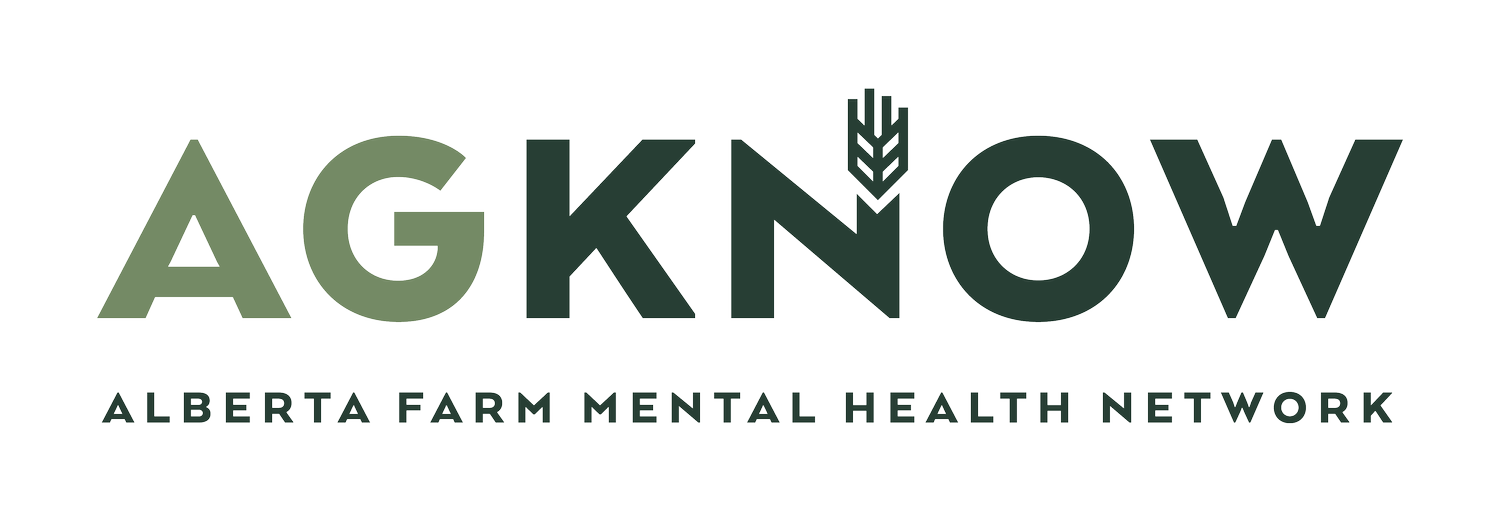THERAPIST NETWORK MEMBER INTERVIEW: Tamara MCCORMICK
Tamara Mccormick
why did you want to join the Therapist network at AgKnow?
I have worked in the area of mental health since the beginning of my career in 2004, first working in children’s mental health and later expanding to adult mental health. To be able to share my knowledge and expertise with a unique, but underserved population such as farmers and their families just seemed like the right fit for me. Plus, learning more about farmers from a research perspective is also very intriguing.
What is your connection to farming?
I grew up in a small farming community and my early years were spent on a farm as well, until my parent’s experienced a significant financial crisis and lost our farm. I recall how devastating this was for my family and even for me, as a young child, to see and experience all of the stress around that loss. My paternal Uncles also farm and I spent a rewarding, but exhausting summer working on my Uncle’s carrot farm as a teen. I am currently living on an 80 acre farm in rural Alberta, raising three teenage boys, chickens and haying with my husband.
Why does having good mental health on the farm matter?
Good mental health can mean that we are ready and able to cope with stress and change. Good mental health can also mean that we are functioning well overall in our day to day. Living on a farm comes with constant change and a lot of uncertainty. If we are emotionally well, we are more likely to cope adequately with the challenges and engage in problem-solving as needed. Our mental health is connected to our physical health (the mind-body connection) and farmers need physical health to provide well for themselves, their families, and their communities.
FROM YOUR EXPERIENCE, WHAT ARE SOME OF THE MAJOR ISSUES FACING FARMERS TODAY?
Through my relationship with AgKnow and my work with farmers/farming families, I have learned a lot about farming related issues. I have learned a considerable amount about raising animals and harvesting crops through my own personal experiences. Animal disease outbreaks can have a huge impact, very quickly to a farm, forcing everyone to live in a place of worry and fear. Many folks are living in that fear right now while carrying on with their many farm and family responsibilities.
Climate change, crop failure and government policies can push farms into sudden unanticipated financial issues or crises. Multiple, complex losses and/or traumatic events on a farm can impact the whole family. Kids can hold the symptoms of adults even without awareness.
HOW CAN GOING TO THERAPY HELP A FARMER WHO IS STRUGGLING WITH THEIR MENTAL HEALTH?
We can all struggle to reach out for help, telling ourselves that it won’t make a difference or because our own beliefs, or those we were raised with, restrain us from taking the next steps. Talking about our difficult stuff can be very uncomfortable, but can help us process through and re-organize our stressors in our own mind and determine how we might continue to move forward in life. A reduction in anxiety or depressive symptoms, an improvement in functioning or in relationships, clearer thinking or a shift in perspective are just some of the many benefits that counselling can provide.
Okay, and how do you think you can help a farmer with their mental health as in you know, why should they choose you like, what can you offer them?
I offer a safe, confidential space to work through stressors, develop additional coping methods and examine how one can move forward with life in a meaningful way - at all times, respecting where they are at and how they choose to get there. With me, you can be assured that I will do my best to be genuine and authentic in my approach, that no topics are off limits and that I will help you learn about yourself and how you want to change and grow as an individual.
what is your preferred style of therapy? Do you have any specializations?
I have a special interest in anxiety, perinatal mood/anxiety disorder, working with children and adolescents with mental health challenges, sleep issues, and couples counselling.
WHAT CAN A FARMER EXPECT IN THEIR SESSION WITH YOU?
I strive to be nonjudgmental and I have a strong belief in individuals’ innate resilience. I believe that when a client sits with me and feels comfortable enough to be vulnerable and share their story that their bravery deserves the utmost respect. I am a client-centered practitioner and I practice in a trauma-informed manner. I am available to help clients with what they want to change or improve. Even little shifts in how you think or feel can add up to big differences in one’s life.
WHAT WORDS WOULD YOU USE TO DESCRIBE YOU?
My clients tell me that I have a grounded, relaxing presence. They tell me that they feel heard and understood. I have the ability to be straight forward and even challenging when it’s needed, but at all times, I acknowledge how significant it can be to simply sit with your own thoughts and feelings. I like to bring an active sense of humor to my work where appropriate and I am always willing to seek out new sources of information to continue my life long learning process and continually improve upon the work that I do.
Interview by Dr. Rebecca Purc-Stephenson
Applied Social Psychologist and Professor in the
Department of Social Sciences
Tamara McCormick is a Registered Psychologist based in Sherwood Park, Alberta.


